Hey there! If you've ever found yourself rummaging through your backpack in a panic, searching for that one book you forgot to return to the school library, you're not alone. Every student knows the struggle of keeping track of borrowed books, and that's why overdue notices are here to help. These friendly reminders not only encourage you to return your items but also keep our library resources flowing for everyone's benefit. Curious about how overdue notices work and what to do next? Read on!
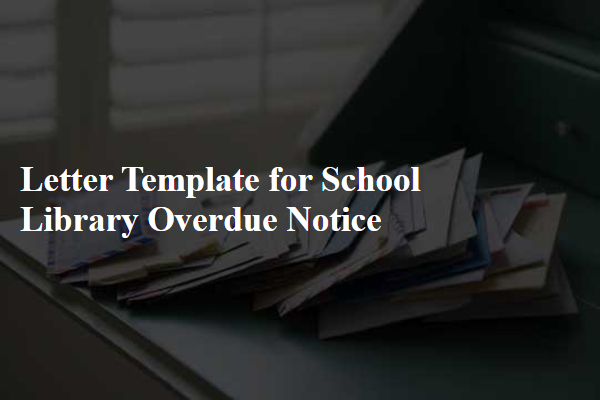
Polite tone and language
The school library's overdue notice is an essential tool for maintaining accountability among students regarding borrowed materials. Timely reminders ensure students respect the return deadlines of library items, such as textbooks, novels, or reference materials. Overdue notices typically highlight specific details, including the title of the items, due dates, and any applicable fines associated with late returns. This system not only encourages responsibility but also promotes equitable access to library resources for all students, fostering a supportive learning environment within the school community. Clear communication of overdue notices can significantly influence students' habits regarding library materials.
Clear due date information
Overdue library books represent a growing concern for school resources. An overdue notice typically includes critical details. For example, the due date, which can be specified as May 15, 2023, should clearly indicate the original return expectation. Specific titles, such as "Harry Potter and the Sorcerer's Stone" and "The Great Gatsby," along with their respective identification numbers, provide clarity. Also, incorporating any accumulated fines, perhaps $0.25 per day after the due date, emphasizes the importance of timely returns. A direct contact, such as the librarian's email or phone number, allows for communication regarding renewal or payment options, ensuring that families understand their responsibilities and the impact on library resources.
Consequences of overdue materials
Overdue library materials can lead to various consequences that impact both students and the library system. Upon failing to return or renew borrowed items by the due date, students may incur late fees, which accumulate daily based on the type of materials, such as books, DVDs, or reference materials. Persistent overdue items can result in a suspension of borrowing privileges, limiting access to essential learning resources. Furthermore, the reinstatement of borrowing rights may require the return of overdue items or payment of any accumulated fees. Schools may also issue reminders via email or printed notices, emphasizing the importance of timely returns to maintain an efficient library environment. Ultimately, returning materials on time supports both individual academic success and the collective resource-sharing system within the school community.
Return instructions
Overdue notices serve as essential reminders for students regarding borrowed materials from school libraries. Students often have various responsibilities, and the presence of an overdue book can lead to late fees or restrictions on borrowing additional materials. Common issues include textbooks, novels, or reference books, typically loaned for a standard period of two to four weeks. Students should carefully monitor due dates, which are usually displayed on the book's spine and in the library's circulation system. If a book is overdue, returning it promptly to the designated checkout desk can prevent further penalties. In cases where the student has lost the book, contacting the library staff immediately is crucial for discussing potential replacement fees or options. Following these instructions ensures a smooth resolution and encourages responsible borrowing habits.
Contact information for assistance
A school library overdue notice serves to remind students of borrowed items, such as books or educational materials, that have surpassed the return deadline. This notification typically includes key details, such as the title of the item, the original due date, and the number of days overdue, which may accrue fines if not returned promptly. To ensure efficient communication, the notice also provides contact information for library staff, including the library's phone number (often listed as a local area code) and email address, facilitating assistance in resolving overdue items. It emphasizes the importance of returning materials to maintain resource availability for other students and supports a responsible borrowing environment within the academic community.

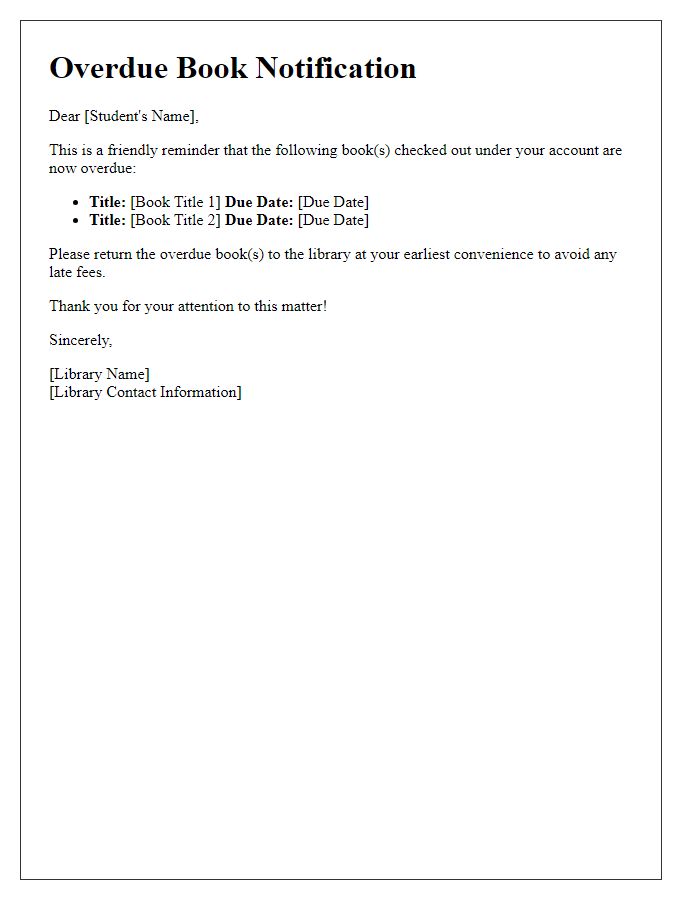
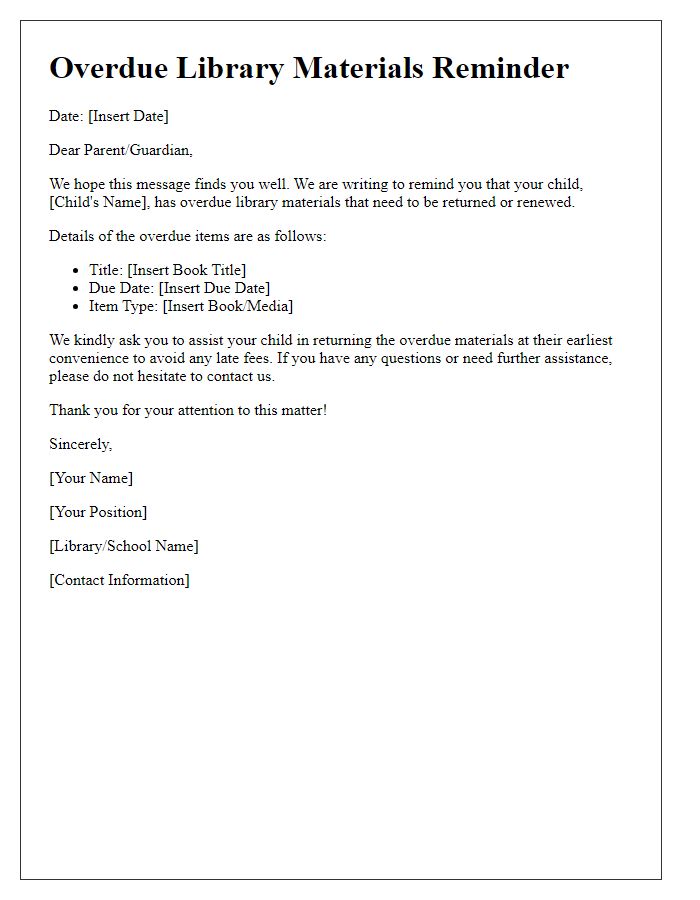
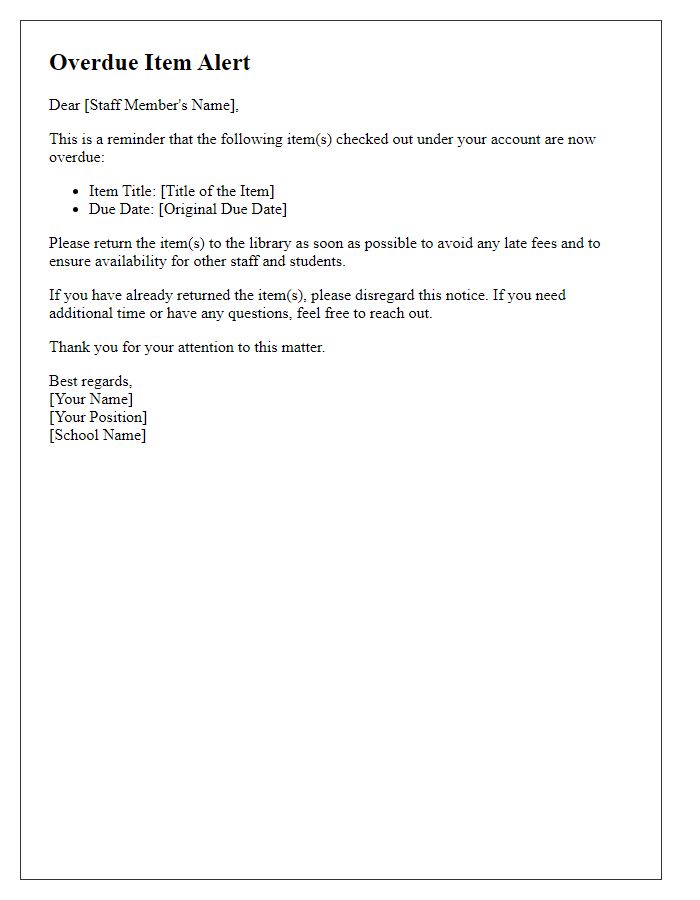
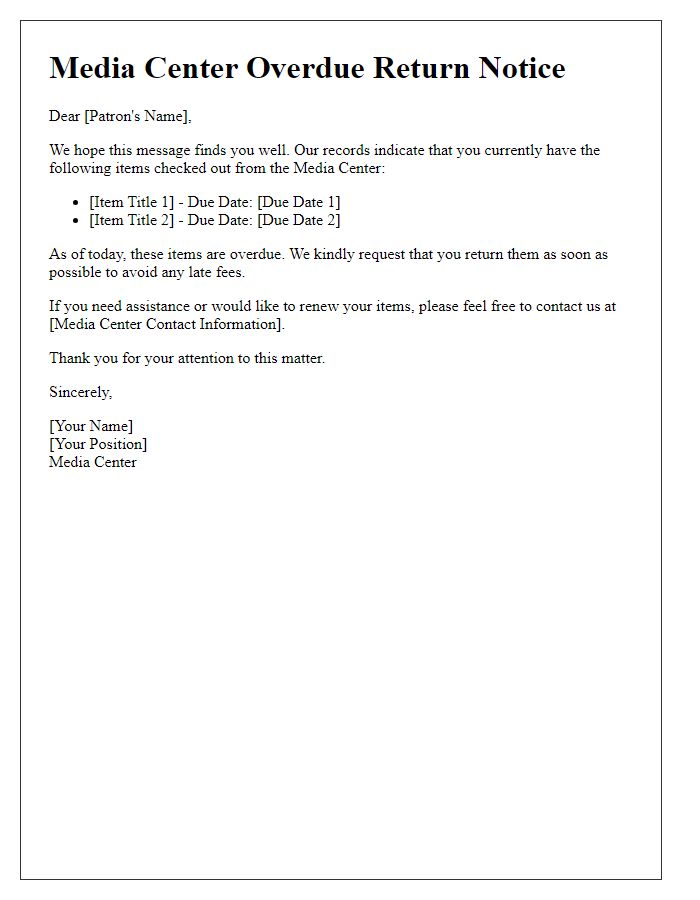
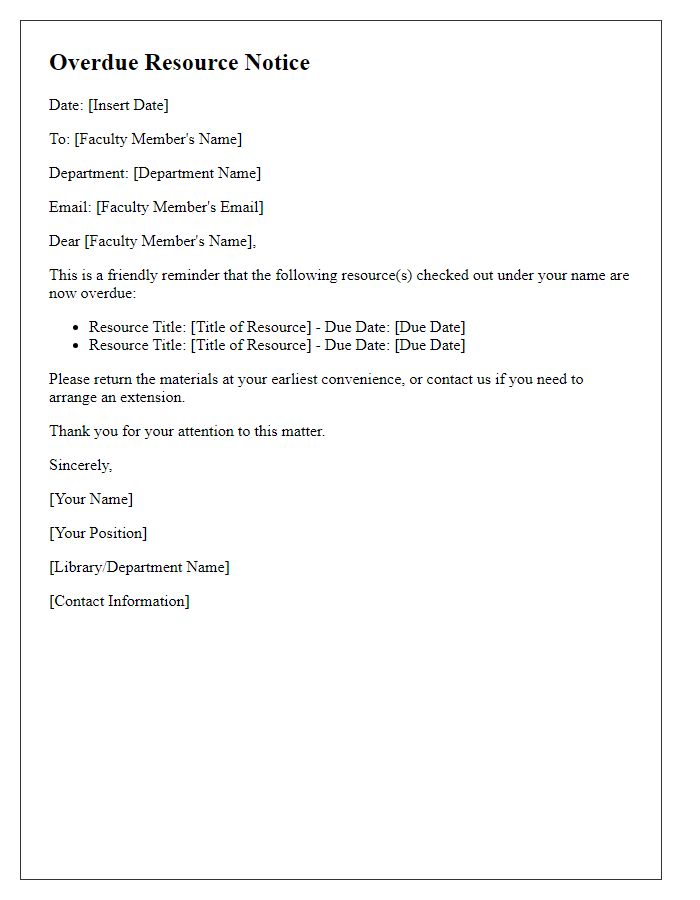
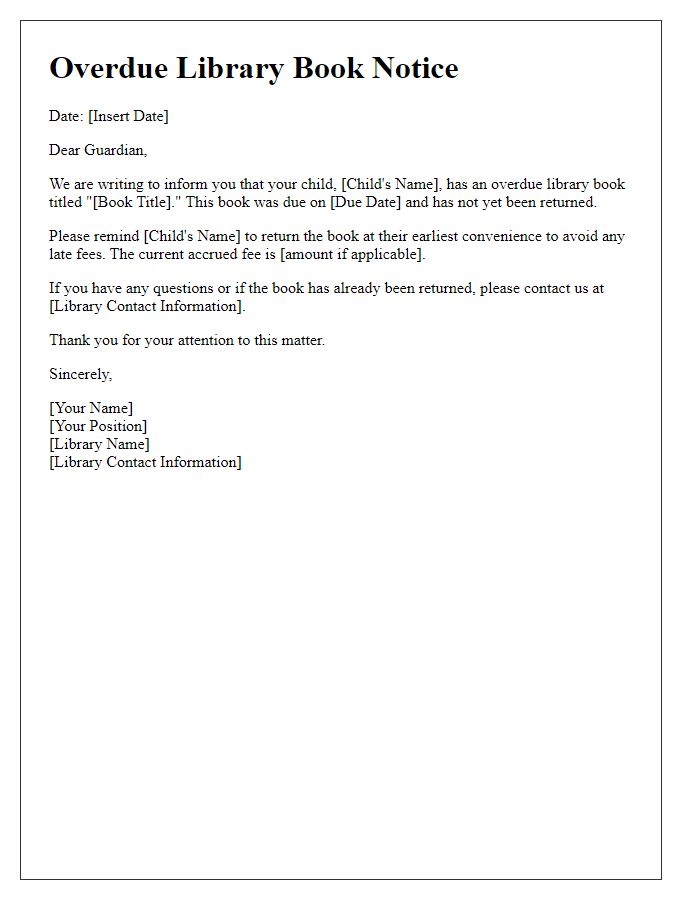
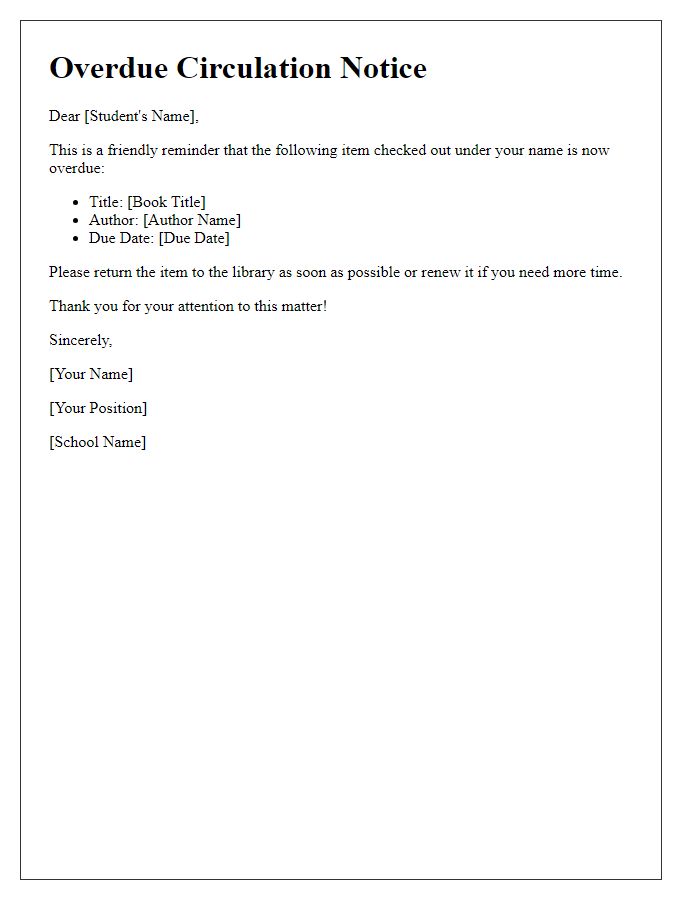
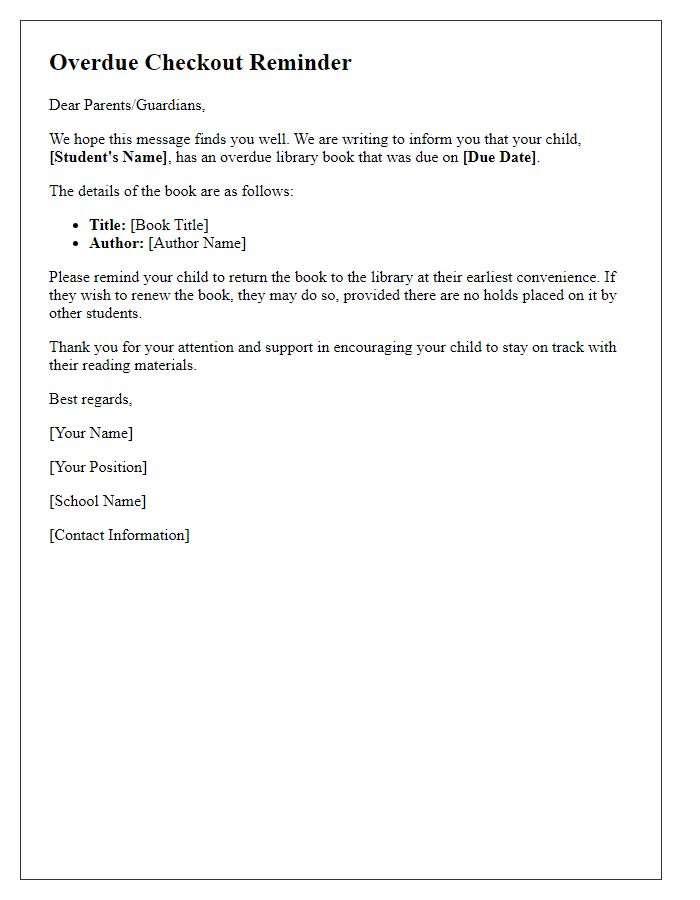
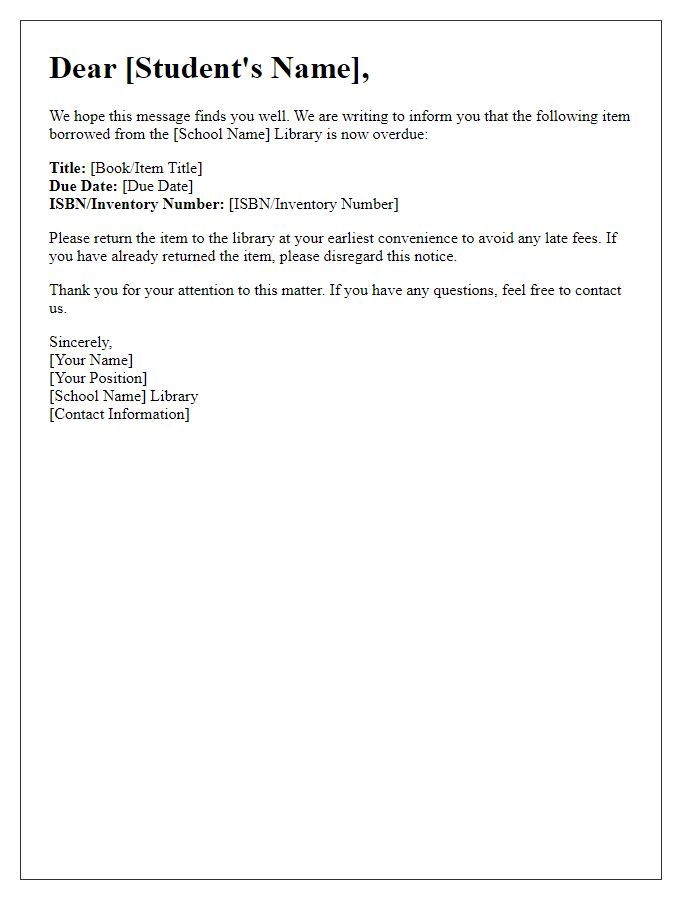
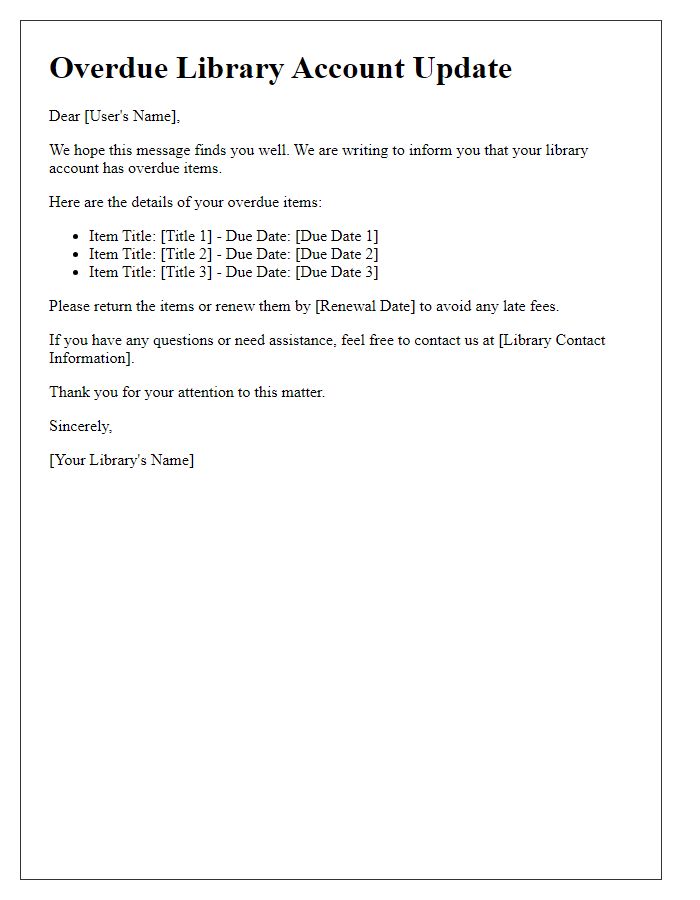


Comments